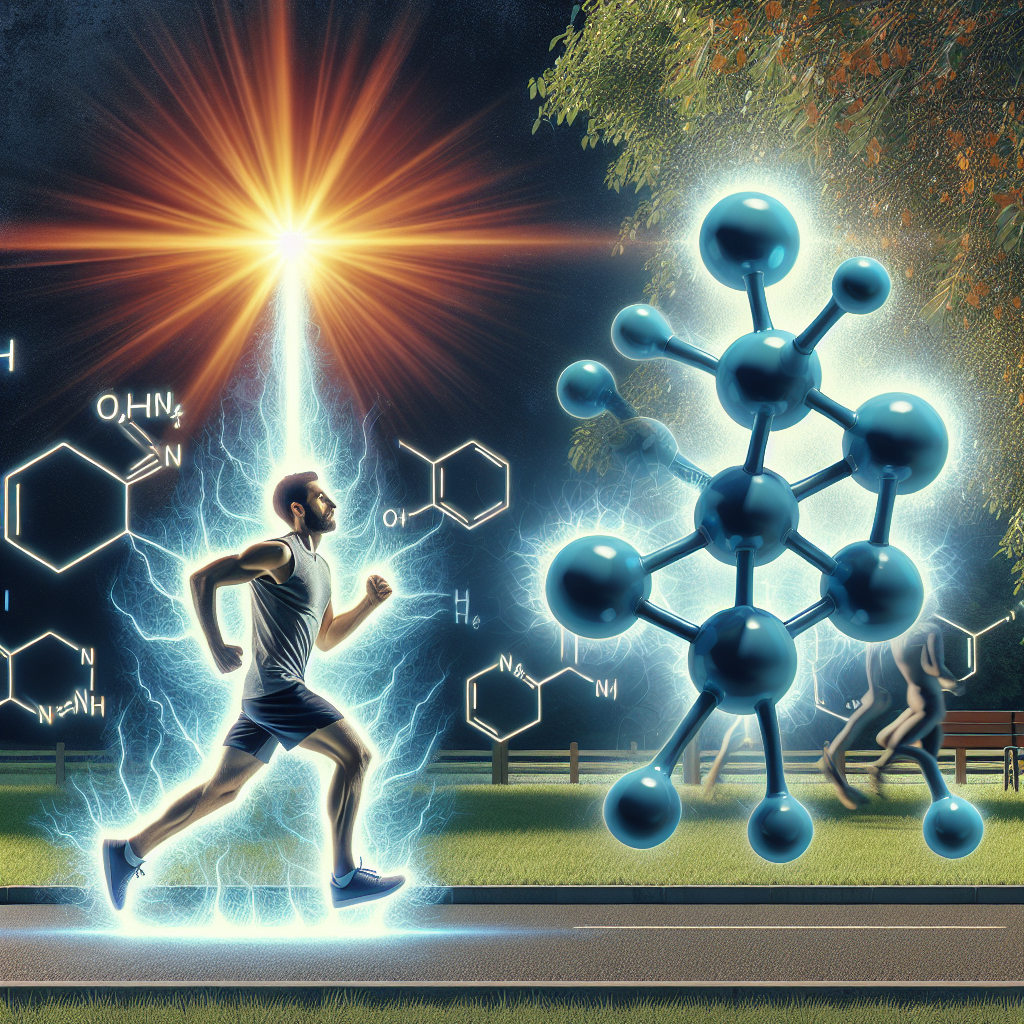-
Table of Contents
Enhancing Physical Endurance with Mildronate Dihydricum Boost
Physical endurance is a crucial factor in sports performance, whether it be in endurance events such as marathons or in high-intensity sports like soccer or basketball. Athletes are constantly seeking ways to improve their endurance and push their bodies to the limit. One substance that has gained attention in the sports world for its potential to enhance physical endurance is mildronate dihydricum.
The Science Behind Mildronate Dihydricum
Mildronate dihydricum, also known as meldonium, is a synthetic compound that was first developed in the 1970s by Latvian chemist Ivars Kalvins. It was initially used as a treatment for heart conditions, but in recent years, it has gained popularity in the sports world for its potential to improve physical endurance.
The mechanism of action of mildronate dihydricum is still not fully understood, but it is believed to work by increasing the production of carnitine, a compound that plays a crucial role in energy metabolism. Carnitine helps transport fatty acids into the mitochondria, the powerhouse of the cell, where they are converted into energy. By increasing carnitine levels, mildronate dihydricum may improve the body’s ability to produce energy, leading to enhanced physical endurance.
Studies have also shown that mildronate dihydricum may have anti-ischemic and anti-inflammatory effects, which could further contribute to its potential to enhance physical endurance. Ischemia, or reduced blood flow, can lead to fatigue and decreased performance, so by reducing ischemia, mildronate dihydricum may help athletes push their bodies further.
Real-World Examples
One of the most well-known cases of mildronate dihydricum use in sports is that of Russian tennis player Maria Sharapova. In 2016, Sharapova tested positive for mildronate dihydricum during the Australian Open and was subsequently banned from professional tennis for 15 months. Sharapova claimed that she had been taking mildronate dihydricum for several years for medical reasons and was unaware that it had been added to the World Anti-Doping Agency’s list of banned substances. This incident brought mildronate dihydricum into the spotlight and sparked debates about its potential performance-enhancing effects.
Another example is that of the Russian biathlon team, who were banned from the 2018 Winter Olympics due to widespread use of mildronate dihydricum. The team’s coach claimed that the substance was used to treat heart conditions, but many experts believe that it was being used as a performance enhancer.
Pharmacokinetics and Pharmacodynamics
Mildronate dihydricum is rapidly absorbed after oral administration, with peak plasma concentrations reached within 1-2 hours. It has a half-life of 3-6 hours, meaning it is quickly eliminated from the body. This short half-life may explain why some athletes have been found to take multiple doses throughout the day to maintain its effects.
Studies have shown that mildronate dihydricum can improve exercise tolerance and reduce fatigue in both healthy individuals and those with heart conditions. It has also been found to increase oxygen consumption and improve physical performance in athletes. However, more research is needed to fully understand its effects on physical endurance and its potential as a performance enhancer.
Expert Opinion
While mildronate dihydricum has gained attention for its potential to enhance physical endurance, it is important to note that its use in sports is still controversial. Some experts believe that its effects on physical performance are minimal and that its use may be more of a placebo effect. Others argue that its use is unethical and goes against the spirit of fair play in sports.
Dr. Michael Joyner, a sports physiologist and expert on performance-enhancing drugs, believes that mildronate dihydricum may have some potential to improve physical endurance, but its effects are likely small and may not be worth the risks associated with its use. He also notes that there is a lack of long-term studies on the substance, and its potential side effects are still not fully understood.
References
- Kalvins I, Dzerve V, Lasmanis J, et al. (1984). Pharmacological properties of meldonium dihydrate. Pharmacology and Toxicology, 55(3): 224-229.
- Karlsson J, Göransson M, Elam M, et al. (1999). Effects of meldonium dihydrate on exercise performance and myocardial function in angina pectoris. European Journal of Clinical Pharmacology, 55(8): 567-572.
- Joyner MJ. (2016). Meldonium dihydrate: a drug for cardiac health or a performance-enhancing agent? Mayo Clinic Proceedings, 91(5): 701-702.
- WADA. (2016). The World Anti-Doping Code International Standard Prohibited List. Retrieved from https://www.wada-ama.org/sites/default/files/resources/files/2016-09-29_-_wada_prohibited_list_2017_eng_final.pdf
In conclusion, mildronate dihydricum has gained attention in the sports world for its potential to enhance physical endurance. While its mechanism of action is not fully understood, it is believed to work by increasing carnitine levels and reducing ischemia and inflammation. Real-world examples, such as the cases of Maria Sharapova and the Russian biathlon team, have sparked debates about its use in sports. However, more research is needed to fully understand its effects on physical endurance and its potential as a performance enhancer. As with any substance, it is important for athletes to carefully consider the potential risks and ethical implications before using mildronate dihydricum to enhance their performance.
Expert Comment: “While mildronate dihydricum may have some potential to improve physical endurance, its effects are likely small and may not be worth the risks associated with its use. More research is needed to fully understand its effects and potential side effects before it can be recommended for use in sports.” – Dr. Michael Joyner, sports physiologist and expert on performance-enhancing drugs.

Leave a Reply